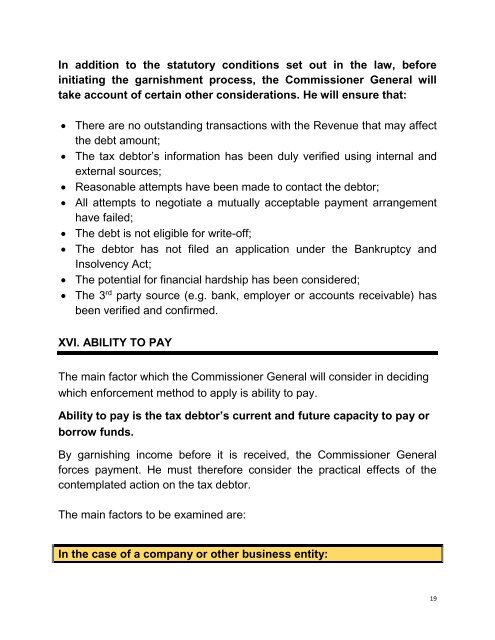GARNISHMENT POLICY
hxmrxk7
hxmrxk7
Create successful ePaper yourself
Turn your PDF publications into a flip-book with our unique Google optimized e-Paper software.
In addition to the statutory conditions set out in the law, before<br />
initiating the garnishment process, the Commissioner General will<br />
take account of certain other considerations. He will ensure that:<br />
There are no outstanding transactions with the Revenue that may affect<br />
the debt amount;<br />
The tax debtor’s information has been duly verified using internal and<br />
external sources;<br />
Reasonable attempts have been made to contact the debtor;<br />
All attempts to negotiate a mutually acceptable payment arrangement<br />
have failed;<br />
The debt is not eligible for write-off;<br />
The debtor has not filed an application under the Bankruptcy and<br />
Insolvency Act;<br />
The potential for financial hardship has been considered;<br />
The 3 rd party source (e.g. bank, employer or accounts receivable) has<br />
been verified and confirmed.<br />
XVI. ABILITY TO PAY<br />
The main factor which the Commissioner General will consider in deciding<br />
which enforcement method to apply is ability to pay.<br />
Ability to pay is the tax debtor’s current and future capacity to pay or<br />
borrow funds.<br />
By garnishing income before it is received, the Commissioner General<br />
forces payment. He must therefore consider the practical effects of the<br />
contemplated action on the tax debtor.<br />
The main factors to be examined are:<br />
In the case of a company or other business entity:<br />
19


